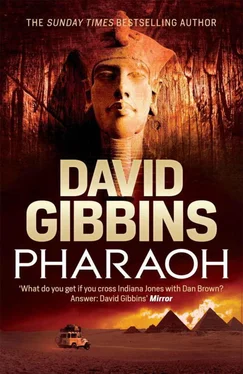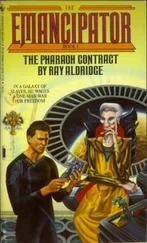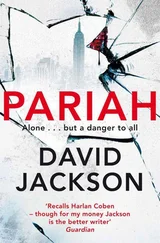My dear John, I am fed up with war already and would wish nothing better than to take up an appointment like that held by Kitchener in Palestine and carry out archaeological survey, or perhaps back in India. Egypt is now crying out for archaeologists as will the Sudan if we can finish this infernal war and get Gordon out alive. But if I were to be an archaeologist in Egypt, then your sister-in-law, darling Maria, would have to live in Cairo, and I would wish that on no English woman on account of the cholera, certainly no English woman wishing to bear children. I would not wish my wife to endure the sufferings of your own dear wife Georgina when your poor boy Edward died in Bangalore. Perhaps if there is no survey post I will find a position at the School of Military Engineering and we can communicate not by letter but daily and in person. I should like that above all things.
I am called by General Earle to the river. More anon.
Your most affectionate friend and fellow archaeologist,
P. Tanner, Lieutenant, Royal Engineers, at Semna, November 24th, 1885’
Rebecca looked up, and put the letter on Jack’s desk. ‘I was sad because you said he was killed only a few weeks later. It seems such a waste. I almost think of him as still being there, at that date, waiting for a life ahead which would never be fulfilled. You can say what you like about Gordon, but this was the cost.’
Jack took the letter and looked at it. Now he knew the name of the sniper: Mayne. He quickly walked over to the cased book collection that he had inherited from his grandfather, and pulled out several volumes of the Army List for the 1870s and 1880s. ‘Here it is,’ he murmured. ‘Edward Mayne, commissioned into the Royal Engineers in 1868, captain 1878, major 1884. Served in the Red River expedition in Canada in 1871. Always a survey officer, or on secondment. This is interesting. He disappears completely from the list after 1885. Missing, whereabouts unknown.’
‘Killed in the desert campaign?’
‘If so, not on official operations, otherwise it would have been recorded. But it wasn’t unknown for men to ride out and disappear without trace in the desert.’
‘And did you notice? Tanner mentions the plaque.’
‘Yes,’ Jack said excitedly. ‘I’m sure it’s the square slab that was missing from the carving on the wall in the temple. It might, just might , contain some clues as to the meaning of the image in the carving. Even if I can’t go back to Sudan, we might at least be able to wrap that one up.’ His phone flashed, and he picked it up, reading the message. ‘ Yes ,’ he exclaimed. ‘Your great-aunt Margaret is back at home. Told me off for leaving an answerphone message instead of sending a text. That’s a modern eighty year old for you. That’s where we’re going. She’ll be delighted to see us this afternoon. We’d better be on our way.’
‘Not before you see what else I’ve found. We can read it in the car.’
‘Okay. Let’s be quick about it. Fire away.’
She held the brown parcel in front of her. ‘This was at the bottom of the first box of Howard’s papers. It was sent to him at the School of Military Engineering in Chatham from a remote location in Ontario through the Canadian Department of Indian Affairs. It seems to have taken a long time getting out of Canada, as no postage was put on it. You can see that on one part of the envelope it’s marked “Veteran”, and the Canadian Department of Veteran Affairs seems to have decided to cover the costs. Beside “Veteran” it says “Nile, 1884–5”. But the postmark from Ottawa is the twenty-fifth of January 1925.’
‘That’s almost fifteen years after Colonel Howard died.’
‘It was unopened. It must have been forwarded by the School to his last known address, and someone stashed it with his stuff.’
‘Do we know who the sender was?’
‘His name was Henri Charrière. I remember you talking about Canadian Mohawk Indians on the Nile, and I looked him up in a book you recently ordered for the library on the subject. He’s in it, though there are few details. He served in the Red River expedition, like Mayne. The two men must have known each other, because Charrière was with the voyageur contingent on the Nile on that day in 1884 when Tanner wrote his letter. Unlike the other Indians, there’s no record of when he went back to Canada, and he didn’t return to live in their communities. There’s a note saying that a man with his name with a veteran’s pension was living in 1922 in a cabin beside Lake Traverse in Algonquin Park, a wilderness area in Ontario. He must have been at least eighty years old by then. How he ended up with what’s in this package, and why he sat on it for so long before deciding to send it to someone in authority, is a mystery.’
‘Show it to me while we walk out.’
‘You might want to stay sitting just for this bit. I opened it to see the cover, but I thought you might want to be the first one to open the actual book.’
Jack took the package from her, glancing at the grubby envelope covered with stamps and nearly illegible writing, and he admired Rebecca’s tenacity in deciphering it. He slipped the volume out, and weighed it in his hands. It was a ruled notebook, a diary or a journal. He realised that he was looking at the back cover upside down, and he flipped it over. There was a hand-written title on the cover. He read it, and then read it again, barely taking it in. He coughed, and read it out loud: ‘“The Journal of Major General Charles Gordon, CB, Garrison Commander at Khartoum, 14 December 1884 to 25 January 1885”.’
He sat back, stunned. It was the lost final volume of General Gordon’s diary. He could scarcely bring himself to open it. This would surely at last reveal the truth of those last days in Khartoum. He pressed the journal against his chest, and then put it carefully back into the envelope, handing it back to Rebecca. ‘Yours for safe keeping. That may be the most extraordinary treasure of this whole quest. You can begin reading it to me in the car.’
Four and a half hours later, Jack pulled off the main road and drove down the narrow lane into the village where his great-great-grandfather had lived. It seemed a world away from the desert of Sudan and the war against the Mahdi, but these villages were the idealised image of England that many of the soldiers dreamed of while they were on campaign, and today they were often the places where the last residues of undiscovered papers and artefacts from those years were to be found. He had not been here for a long time, but he remembered the route through the picturesque village square and up the side lane to the row of half-timbered cottages, the rolling summits of the Brecon Beacons looming a few miles behind. He stopped outside the front gate, switched off the engine and enjoyed the silence after the drive, letting Rebecca sleep for a few minutes longer.
It had been an extraordinary few hours of revelation as she had picked her way through the diary. Gordon’s last entry on the morning of the day he died was a neatly written statement that Jack could remember now from memory: Major Mayne of the Royal Engineers has arrived, with a companion. He is to have this journal for safe keeping, so that it may be published and known to the world. Now I know I am to die. I have stayed with the people of Khartoum to the last .
Everything about it was astonishing. Now Jack knew where Major Mayne had gone. He and Rebecca were certain that the companion had been Charrière, as that would explain how he came to have the diary. Why it had taken him so long to return it, beyond the lifetimes of most of the players in those events, remained perplexing. Mayne himself must have died for Charrière to have ended up with the diary, perhaps during that final apocalyptic day when the Mahdist forces overran the city. What Mayne was doing visiting Gordon in his final hours was a mystery. There was no other mention in the historical records of a British officer reaching Gordon so late in the day. It must have been a covert mission, top secret. The phrase that repeated over and over in Jack’s mind was Gordon’s final sign-off: now I know I am to die. Had he simply become resigned to the inevitable, to the inescapable outcome of the Mahdi’s attack? Or had he known something else? Jack had remembered Lieutenant Tanner’s letter mentioning Mayne’s rifle, and he had begun to think the unthinkable. Had a British officer been sent in secret in a last-ditch attempt to persuade Gordon to leave, to ensure that he was not captured by the Mahdi and paraded in front of the world? Had that officer been chosen because he was also one of the army’s most skilled marksmen, with instructions to deploy that skill should Gordon refuse to leave? He had remembered the iconic image of the death of Gordon, standing fully exposed on the balcony of the palace; using satellite imagery, Rebecca had determined that he would have been within range of a sharpshooter with a high-powered Sharps rifle on the opposite side of the river, shooting to ensure that he was killed yet leaving no evidence that his death was anything other than that of a soldier fighting to the last against an overwhelming enemy.
Читать дальше












